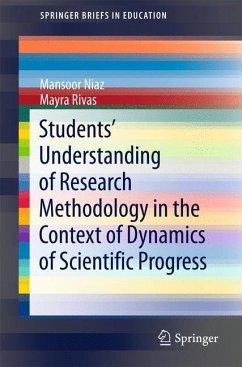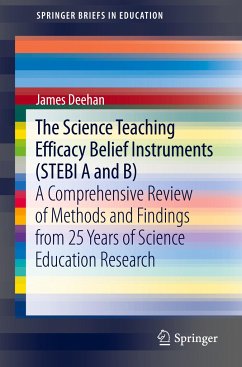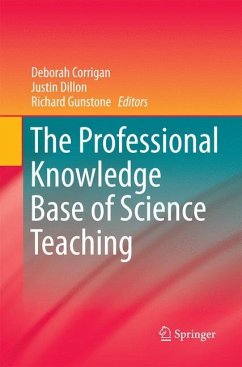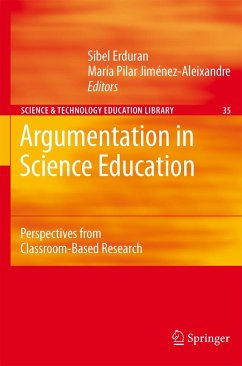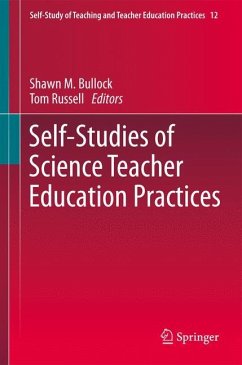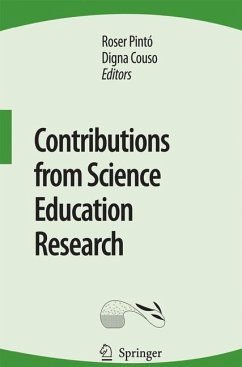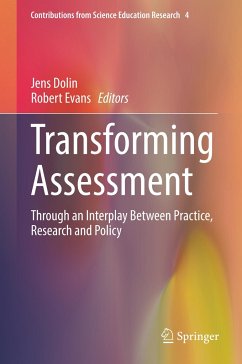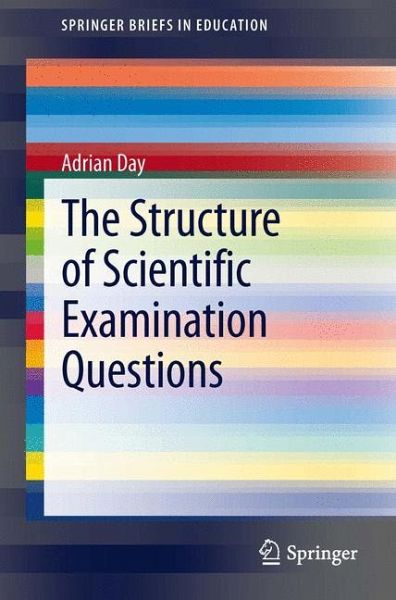
The Structure of Scientific Examination Questions

PAYBACK Punkte
19 °P sammeln!
This book shows how Systemic Functional Linguistics may be used to explore and explain the grammar of scientific examination questions. The author outlines the key elements of this theory and identifies problematical structures that affect the linguistic validity of such education assessment questions. This book also shows how examination questions may provide insight into the relationship between teaching and language in science.Do candidates give an incorrect answer because they do not understand the topic or because they do not understand the language by which the question is framed? This b...
This book shows how Systemic Functional Linguistics may be used to explore and explain the grammar of scientific examination questions. The author outlines the key elements of this theory and identifies problematical structures that affect the linguistic validity of such education assessment questions. This book also shows how examination questions may provide insight into the relationship between teaching and language in science.
Do candidates give an incorrect answer because they do not understand the topic or because they do not understand the language by which the question is framed? This book shows how the analysis of scientific examination questions can answer this question.
These chapters show how contemporary linguistics can inform the assessment of science and address topics including: the role of images, lexicography, the morphology of sentences, semantic discontinuity and the active reader.
An example question is used throughout the text to illustrate the theories and each chapter has its own useful summary, making it a very readable work.
Do candidates give an incorrect answer because they do not understand the topic or because they do not understand the language by which the question is framed? This book shows how the analysis of scientific examination questions can answer this question.
These chapters show how contemporary linguistics can inform the assessment of science and address topics including: the role of images, lexicography, the morphology of sentences, semantic discontinuity and the active reader.
An example question is used throughout the text to illustrate the theories and each chapter has its own useful summary, making it a very readable work.




